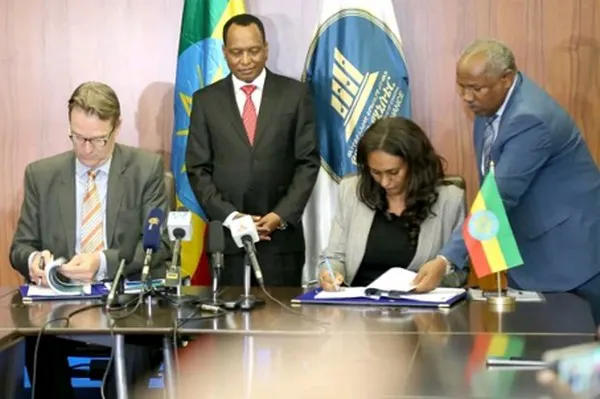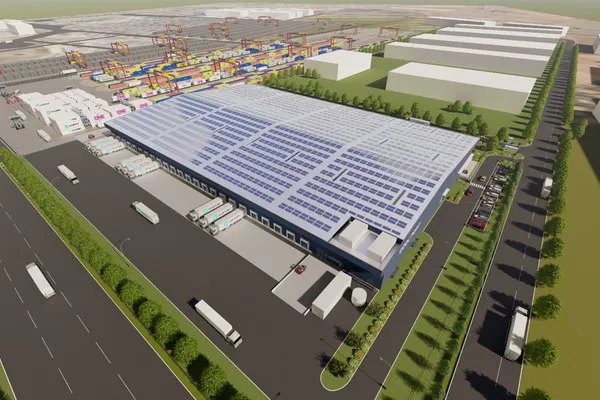The Ethiopian government has signed an agreement with Invest International, which acts on behalf of the Minister for Foreign Trade and Development Cooperation. The agreement initiates the first phase of a large cooling center that is located 70 kilometers from the capital city Addis Ababa. For the coming years, the so-called Cool Port Addis project should ensure that horticultural crops from Ethiopia can be cooled and exported to the Port of Rotterdam and other markets.

This project aims to promote sustainability in the supply chain and provide Ethiopian growers with the opportunity to expand their market reach. Exports have been transported primarily by trucks and airplanes, but now trains and boats will also be utilized. Currently, the Ethiopian market mainly exports flowers, but the aim is to diversify by allowing vegetable growers to benefit from the cooling facilities as well. This way, they can access a larger export market.
The first phase of the Cool Port Addis project requires an investment of approximately 27.5 million dollars. Invest International will cover 11.7 million dollars, the remainder is funded by the Ethiopian government. The contracts for the realization and operationalization of the cooling warehouse will be tendered. Dutch companies specializing in cooling logistics and horticulture are likely to get involved in the Cool Port Addis project because of the project's innovative and sustainable character.
Lara Muller from Invest International: "The development of Cool Port Addis entails a close collaboration between public and private parties from Ethiopia and the Netherlands. Invest International, the Ministry of Foreign Affairs, and the Flying Swans consortium have been actively engaged in the development phase. We are glad to see the project being realized. It serves both the Ethiopian and the Dutch interests. Dutch companies are among the key investors in Ethiopia's horticulture industry, and the Port of Rotterdam is the world's largest in terms of the import and trade of horticultural crops. This collaboration fosters the development of sustainable and inclusive international trade. It provides small farming companies in Ethiopia with greater opportunities for exporting their goods. The cooling center will reduce product losses and improve quality which increases the export price and thus higher incomes for farmers. All of this exemplifies a win-win situation in which CO2 reduction related to logistics coincides with the creating opportunities and economic value."

Flying Swans
In collaboration with the Ethiopian Maritime Authority, developer Flying Swans has taken the lead in project development. Funded by Invest International, Flying Swans is closely involved in establishing fair and environmentally friendly trade corridors which will be led by the Netherlands. "The signing of this partnership marks a significant milestone in Flying Swans' history in Ethiopia as we embark on a new phase of activities in the country," says Jeroen Bos. He adds: "The Dutch fresh produce sector has eagerly awaited this moment because efficient cooling logistics services are vital for the international purchasing of vegetables and fruit."
The realization of the Cool Port Addis project is a significant opportunity for Ethiopia to gain (further) access to export markets with its horticultural producers. The cooling center will significantly boost future growth and investments in Ethiopia's horticulture sector.
Source: Invest International
